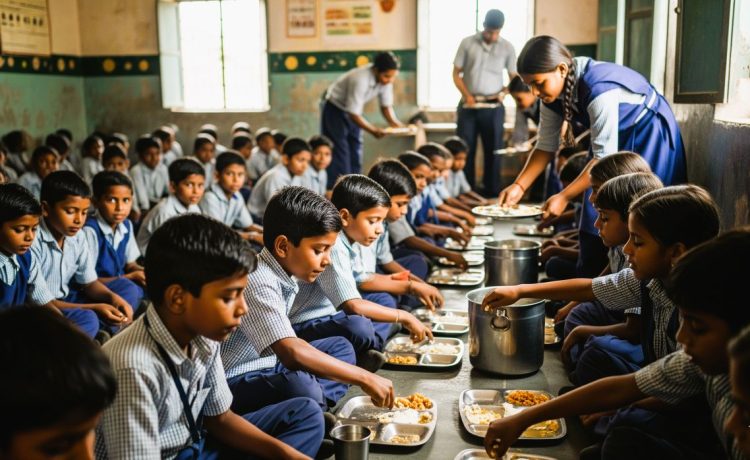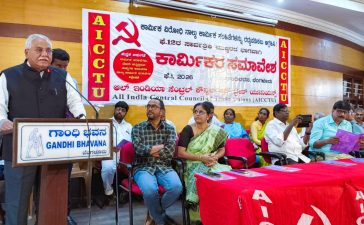Karnataka Health Activist Group Condemns Government’s Partnership with ISKCON for Hospital Meals, Citing Caste and Secularity Concerns
Bengaluru – A prominent health rights organization has launched a stern critique against the Karnataka government’s recent decision to outsource patient meal services in state-run hospitals to the International Society for Krishna Consciousness (ISKCON), calling the move a violation of constitutional secular principles and an imposition of unscientific “Brahminical culinary ideology” on a diverse patient population.
The Karnataka Janaarogya Chaluvali (KJC) has demanded the immediate cancellation of the partnership with the religious organization, arguing that it represents a failure to strengthen public healthcare infrastructure and jeopardizes the rights and well-being of patients, particularly those from Bahujan communities.
A Failure of Public Investment, A Question of Accountability
At the heart of the controversy is the government’s choice to contract out an essential healthcare service rather than invest in and modernize its own hospital kitchens and nutritional infrastructure. KJC asserts that this outsourcing model raises significant concerns about long-term accountability, sustainability, and the state’s abdication of its core responsibility.
“Instead of investing in public hospital kitchens and infrastructure, the government is outsourcing an essential service,” the group stated, framing the decision as a shortcut that undermines the public healthcare system. The group warns that replacing a state-run service with a privately-managed, religious-affiliated one could compromise the quality and appropriateness of patient nutrition.
Allegations of Casteist Imposition and Cultural Insensitivity
The criticism extends beyond operational concerns into the deeply contentious realms of caste and culture. KJC has labeled ISKCON a “casteist organisation” and alleges the government’s policy facilitates the forced imposition of a specific dietary practice on patients for whom it may be alien or unsuitable.
“This move by the government is only facilitating imposition of unscientific Brahminical culinary ideology on the Bahujans for whom this diet is neither healthy nor does it suit their palate,” the KJC said in its release. They emphasize that opposition to such partnerships is not new and has been repeatedly voiced by various organizations, including Ahaara Namma Hakku, at the highest levels of government.
The Constitutional Crisis: Violation of Secular Space
A primary pillar of KJC’s argument is that government hospitals are secular public spaces, funded by the taxes of all citizens regardless of religion. Handing over a core function like patient nutrition to a religious body, they argue, is a fundamental violation of the state’s constitutional mandate to maintain neutrality.
KJC emphasized that this action “fundamentally violates state neutrality,” adding that “It places vulnerable patients in a coercive environment where their source of sustenance is tied to a specific religious identity. This is unacceptable and unconstitutional.”
Media Updates: +91-93531 21474 [WhatsApp] | indianowme@gmail.com
Call to Action and Democratic Resistance
In response, the KJC has issued a clear call to action, demanding the state’s Health Minister reverse the “regressive decision” immediately. The group has vowed to oppose the partnership through all available democratic means.
“The government’s mandate is to provide unbiased, high-quality healthcare to all citizens. We will oppose this move through all democratic means available. The dignity of every patient and the health of our democracy depend on it,” the KJC stated. The organization plans to submit a formal memorandum to the Health Minister and has called for a wider public debate on the issue.
Quotes for Attribution
![]()











